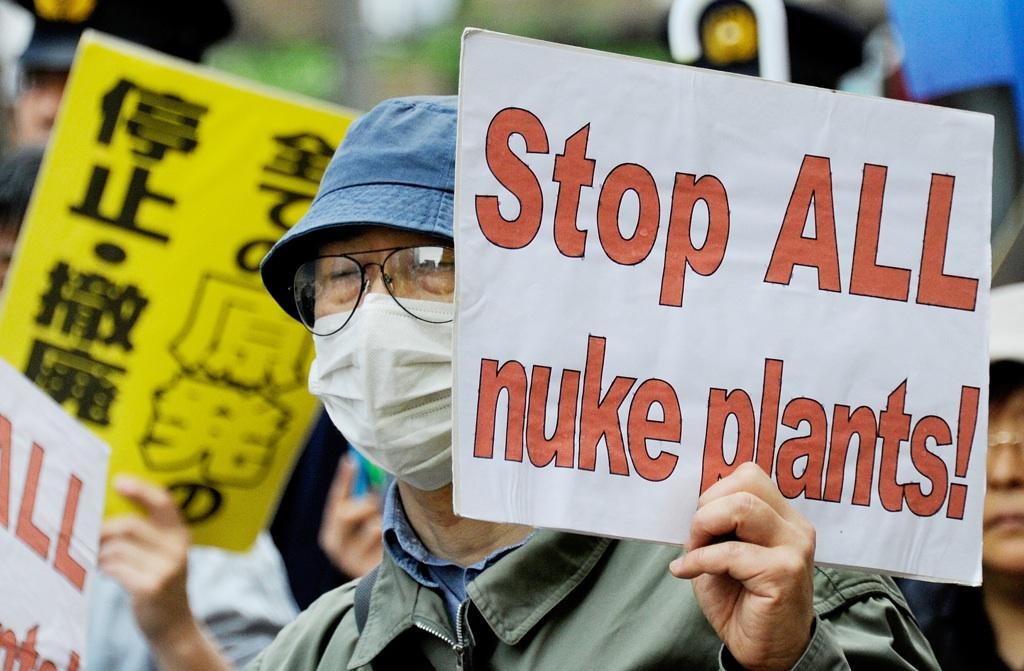Radioactive readings jump in Japan’s seabed
A man holds a placard during a march denouncing the use of nuclear plants and power during a May Day demonstration in Tokyo on May 1, 2011. Several hundreds of people took part in the May Day demonstration in the wake of the country’s recent nuclear crisis at the Fukushima nuclear plant, north of Tokyo, damaged in the March 11 earthquake and tsunami.
Levels of radioactive substances have jumped in the Pacific seabed off Japan to as much as 1,000 times the normal readings, authorities have announced.
Seabed samples collected near the Fukushima nuclear power plant, crippled by a massive earthquake and tsunami in March, contained radioactive iodine and cesium, Japan’s Kyodo news reported.
The normal readings for the materials can be up to several becquerels, the Tokyo Electric Power Company (TEPCO) said. But these readings were between 98 to 190 becquerels of iodine per kilogram and 1,200 to 1,400 becquerels of cesium.
TEPCO said that the radioactive substances may have fallen into the sea after being released into the air from the plant or may have been carried by contaminated water that seeped from the plant, according to news agency AFP.
Levels of the two materials were too low to be gauged in the past, a TEPCO spokeswoman said. The company did not say whether the levels were considered harmful.
Samples taken at another spot 20km away from the plant also showed similarly high radiation levels. TEPCO said it would continue to examine radiation levels.
“We cannot say anything definite after just one probe. We will conduct more sample examinations and keep a watch,” the spokeswoman said, according to AFP.
The samples were taken three kilometres from the coast at a depth of between 20 and 30 metres.
The Fukushima plant has leaked radiation into air, soil and ocean since it was severely damaged by the massive quake and tsunami.
Greenpeace said on Tuesday it had begun independent tests of water samples from the ocean near Japan's crippled for radiation contamination.
The new figures came as Japan debates who will pay TEPCO’s growing liabilities from the nuclear accident, the Wall Street Journal reported. The bill is estimated to be in the tens of billions of dollars.
Akihisa Nagashima, a lawmaker with the ruling Democratic Party of Japan, told the paper that TEPCO was too big to fail, given it had a monopoly on supplying power to some of the country’s key economic regions.
